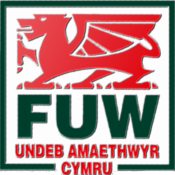 A special report by the European Court of Auditors has raised further concerns over the impact milk quota abolition will have on Welsh and UK dairy farms, says the Farmers’ Union of Wales (FUW).
A special report by the European Court of Auditors has raised further concerns over the impact milk quota abolition will have on Welsh and UK dairy farms, says the Farmers’ Union of Wales (FUW).
Speaking at the Welsh Dairy Show in Carmarthen, FUW milk committee chairman Eifion Huws said: “This is now the fourth report to be published in recent years that highlights the price volatility and fall in farm incomes that will accompany the abandonment of the milk quota regime.
“The FUW has received criticism from some regarding its long-standing policy on milk quotas, yet the evidence is now overwhelming – abandoning milk quotas will be a bad thing for the dairy industry, and that is something we cannot support.”
The Court of Auditors considered how effectively the Commission manages the market for milk and milk products with reference to the main objectives of EU dairy policy.
Those objectives include achieving equilibrium on the milk market, stabilising prices, and ensuring a fair standard of living for producers.
The Court found that the nominal milk producer price varied little during the 1984-2006 period compared with the period before the introduction of quotas. However, in real terms, the milk producer price has fallen continuously since 1984.
The report goes on to draw attention to the overall effects expected following the withdrawal of quotas.
These include “an increase in milk production, which should lower the market price”, “a reduction of producers’ incomes, in spite of an increase in the quantities produced”, and “a stimulation of the EU’s exports, possibly causing a downturn in world prices”.
The report also highlights the fact that farmgate and consumer prices do not follow parallel trends, stating: “Between the beginning of 2000 and mid-2007 nominal consumer prices for milk products increased by 17 % while the nominal price paid to the producer fell by 6%”.
It goes on to say that “on a market liberalised by the abolition of quotas, production capacities will remain relatively inflexible and producers might not be in a position to adapt rapidly to fluctuations in demand.
“The Council has decided to retain public intervention as a ‘safety net’. But this safety net is so thin there is a risk it will be of only limited use in a major crisis and quite inadequate in relation to the risks in respect of the surpluses that the EU might face.
“The Commission and the Member States must ensure that the concentration of processing and distribution companies does not reduce milk producers to mere price-takers and does not restrict the final consumer’s possibility of enjoying an equitable share of price reductions.”
Mr Huws added: “Once again, the FUW’s long standing position on milk quotas has been completely vindicated. This represents yet more evidence confirming that the abandonment of the quota regime will significantly add to the problems already being felt by the industry.”